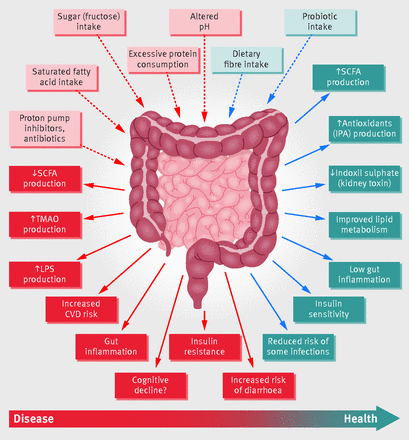
In the world of health and wellness, one term that has been gaining significant attention lately is “microbiome”. But what exactly is a microbiome, and why is it important for our gut health and nutrition? In this article, we will delve into the intricacies of the gut microbiome and explore how maintaining a balanced microbiome can greatly impact our overall well-being.
Understanding the Microbiome
The microbiome refers to the vast community of microorganisms that reside in and on our bodies. In particular, the gut microbiome consists of trillions of bacteria, fungi, and viruses that have a profound impact on our digestive system and overall health. These microscopic organisms play a crucial role in breaking down food, absorbing nutrients, producing vitamins, and helping to regulate our immune system. In essence, the gut microbiome is like a bustling ecosystem, teeming with diverse organisms that work together to keep our bodies functioning optimally.
The Gut-Brain Connection
It is well-known that our gut health can significantly influence our brain and overall mental well-being. In recent years, researchers have discovered a direct communication pathway known as the gut-brain axis, which allows the bidirectional flow of information between the gut and the brain. This intimate connection emphasizes the importance of maintaining a healthy gut microbiome, as imbalances can impact not only our digestive health but also our mood, cognition, and even the risk of neurodegenerative disorders.
The Role of Nutrition
Nutrition plays a vital role in shaping the composition and diversity of our gut microbiome. Consuming a diet rich in diverse fibers, prebiotics, and probiotics can help support the growth of beneficial bacteria while keeping harmful microbes in check. Whole foods such as fruits, vegetables, legumes, whole grains, and fermented products like yogurt and kimchi are excellent sources of nutrients that promote a healthy gut microbiome. On the other hand, a highly processed, low-fiber diet can lead to an imbalanced microbiome, with potential health consequences.
The Effects of an Imbalanced Microbiome
When our gut microbiome becomes imbalanced, it can lead to a condition known as dysbiosis. Dysbiosis is associated with an increased risk of various health issues, including gastrointestinal disorders, autoimmune diseases, obesity, diabetes, and mental health disorders such as anxiety and depression. Imbalances in the gut microbiome can also compromise our immune system’s ability to fight off infections, leaving us vulnerable to diseases.
Supporting a Healthy Microbiome
The good news is that there are several ways we can support and maintain a healthy microbiome. Alongside adopting a balanced diet, lifestyle factors like managing stress levels, getting enough sleep, and exercising regularly can positively impact our gut health. Moreover, avoiding unnecessary antibiotic use, which can damage the delicate balance of gut flora, and opting for natural alternatives when appropriate can also preserve the diversity of our microbiome.
Conclusion
Our gut health and nutrition are intricately linked to the health of our microbiome. By understanding the importance of a balanced gut microbiome and making conscious choices to support its diversity, we can pave the way for overall well-being. Prioritizing a diet rich in whole foods, incorporating regular exercise, managing stress levels, and being mindful of antibiotic use are all essential steps towards nurturing a flourishing microbiome. So let us embrace and cherish the microscopic world within us, as it holds the key to a healthier future.
Copywritten by [Your Name] – All rights reserved

